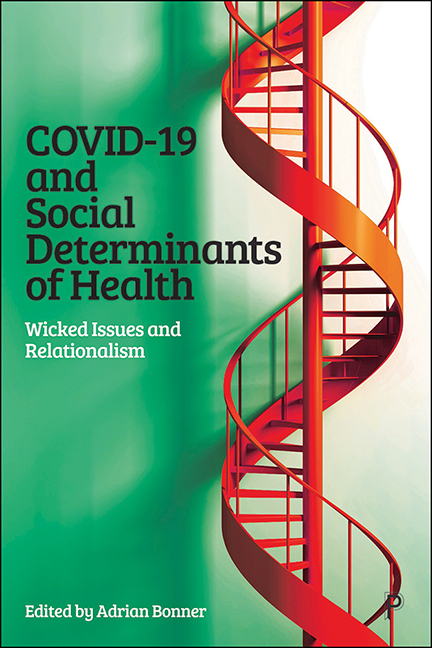Book contents
- Frontmatter
- Miscellaneous Frontmatter
- Contents
- List of figures and tables
- Notes on contributors
- Foreword
- Introduction
- Part I Wicked issues and relationalism
- Part II Regionalism and geopolitical environments
- Part III Public sector, COVID-19 and culture change
- Part IV The third sector
- Part V The case for relationalism
- Part VI Engagement and proposed changes
- Conclusion
- Appendix The Centre for Partnering
- Index
18 - Soft and hard measures in optimising wellbeing through procurement, commissioning and partnering
Published online by Cambridge University Press: 18 January 2024
- Frontmatter
- Miscellaneous Frontmatter
- Contents
- List of figures and tables
- Notes on contributors
- Foreword
- Introduction
- Part I Wicked issues and relationalism
- Part II Regionalism and geopolitical environments
- Part III Public sector, COVID-19 and culture change
- Part IV The third sector
- Part V The case for relationalism
- Part VI Engagement and proposed changes
- Conclusion
- Appendix The Centre for Partnering
- Index
Summary
Introduction
The essential components to enhancing well-being in commissioning and procurement are public authorities, especially National Health Service (NHS) bodies and councils, and these have been responsible for a wide range of services for the public for many decades, through the exercise of a wide range of statutory duties but also powers. The means by which such services have been delivered have however tended to be altered by successive governments restructuring the NHS, whereas councils have tended to have had their statutory functions constrained or broadened on a constantly fluctuating basis. In many ways the delivery of high quality public services has been shaped by the ‘make or buy’ question that has arisen and been to the fore since the introduction of compulsory competitive tendering (CCT) for a number of local authority services in 1989 that was then succeeded by a ‘best value’ regime that came into force in 2000.
It would be wishful thinking for any government to take an interest in a wholesale review of NHS and local government functions so that we can have a comprehensively integrated offer in terms of health and social care but also other services. So, we can expect that when changes are made they will continue to be adding layers of adjustments such that the image that can come to mind for the legislation that governs public services is of an Egyptian mummy with plaster casts and adhesive tape all over it.
In the absence of any interest in integrated legislation and central coordination by central government (preferring the easier and expedient approach of meddling and interference), it is arguably down to councils and local NHS bodies to do the best that they can for the communities that they serve and to establish the coordinated and engaged approach that local services require.
Given this, the opportunity to engender the greatest social, economic and environmental wellbeing should perhaps be determined by the ascertainment of need, an understanding of the resources required to meet that need, a programme to work out the best way of attracting the right resources to address that requirement and then a route map for delivering that programme.
- Type
- Chapter
- Information
- COVID-19 and Social Determinants of HealthWicked Issues and Relationalism, pp. 338 - 350Publisher: Bristol University PressPrint publication year: 2023



